interview by Michael McCarthy
You have just arrived at part two of my in-depth interview with Craig Goldy of Dream Child, a band that harkens back to his glory days as lead guitarist for Dio on the albums Dream Child, Magica and Waking the Dragon. During recent years, Craig has been the driving force behind the bands Resurrection Kings and Black Knights Rising. He was also hand-picked for the Dio Disciples hologram project by the late Ronnie James Dio’s wife and manager, Wendy Dio. Additionally, Craig has enjoyed time in the limelight playing for David Lee Roth and Budgie. Needless to say, he’s accomplished a lot during his impressive 30 + year career as a heavy metal lead guitarist, and we delve even deeper into his work here, in addition to doing our famous random questions.
If you’ve missed Part One of this interview, simply click here to read it now.
MM: According to Wikipedia, at one point you were going to perform in a band called Black Knights. Did that project ever come to fruition?
CG: Yeah, actually, we ended up calling it Black Knights Rising. Me and Vinny Appice and Elliott Rubinson were the core people. Elliott Rubinson has passed away recently. That’s why we stopped doing it. He played bass for Uli Roth and he owned Dean Guitars. At one point we had Joe Lynn Turner sit in with us. We had Tim “Ripper” Owens sit in with us. We had John West – he was our main guy. The charm of it, really, was that we did a bunch of Deep Purple and Rainbow songs that had keyboard solos without a keyboard player. So, I would learn the keyboard solos on guitar and play them on guitar instead of just doing another guitar solo. So, it was just kind of cool when we did “Highway Star” and Joe Lynn Turner looked over at me and he goes, “You just did the keyboard solo on guitar! Hey, that’s cool!” Then, little by little, he and I became friends and we started doing concerts together for his solo project. That was originally gonna be Black Knights Rising and we were gonna do more with that, but then when Elliott passed away it just hurt too much.
https://youtu.be/s98Q7muKq7E
MM: When you were doing it, was it just a live project?
CG: Well, we were gonna do some original stuff, but it was basically just covers. Deep Purple and Rainbow and Black Sabbath and Dio.
MM: I also read that you released a couple of songs in collaboration with Quiet Riot vocalist Mark Huff, but they failed to say what the band or duo was called.
CG: I think you can still find them on iTunes. I think it’s called Craig Goldy’s 13th Floor and then some band called 13th Floor sent me a cease and desist letter because they had trademarked the name 13th Floor. Even though I had the name way back. It was just a whole mess. I think they still have them on iTunes. One of them’s called “Hole in My Heart” and the other one’s called “Dark Rainbow.” And if not that, on CD Baby they still might have it. It might even be Craig Goldy’s Personal Tribute to Ronnie James Dio. Then it’ll be “Hole in My Heart” and “Dark Rainbow.” They were just two songs that I did as my personal tribute to Ronnie.
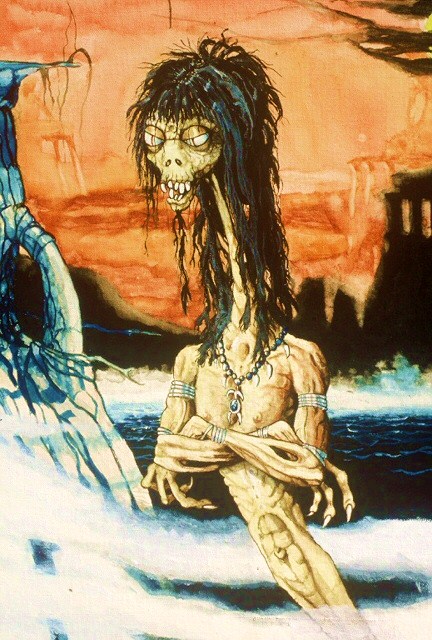
MM: Why haven’t you released a solo album in decades?
CG: Well, because I wanted to put a band together first. I wanted to put a band together like this Dream Child album first. I wanted to make a statement as a band and then there’s a company that wants to release my first solo album, Hidden in Plain Sight. Craig Goldie’s Ritual, Hidden in Plain Sight. So, I’m waiting for the right time for that because that album kind of got swept under the carpet. At one point, it went to number 10 in Japan above Guns N’ Roses’ Use Your Illusion I and II and Ozzy’s No More Tears. Number 4 in imports in Europe. And number 67 in the top U.S.A. 100. And then the record company signed another band and started putting their efforts toward that. Like they always did. That’s a good record. So, they want to re-release that. That would be my first thing to do. Maybe do a solo album later on down the line, but I really like this Dream Child thing.

Because Ronnie did say, way back in the Dream Evil days, when MTV was filming one of our concerts for Headbanger’s Ball, he spoke about me and at the end of it he said, “I look forward to Craig being the leader of his own band someday.” After this album was done, Serafino loved it so much he called me and said, “Craig, this is your band.” He goes, “I want to make this as successful as possible. That’s why they did a four-month campaign. One song out each month then September 14 another video for a song called “Midnight Song,” which is more along the lines of a Whitesnake kind of thing. It’s gonna come out on September 14th. And then when people hear the whole album they’ll understand that this is not a Dio tribute band. It’s just music. The mission of it really was to bring back the good old days. The early Deep Purple with David Coverdale and Glenn Hughes. Rainbow Rising, Long Live Rock ‘N’ Roll by Rainbow. Bring those early days of Van Halen and early days of Whitesnake back. And early days of Genesis. And mix them all together. Even though a mixture of old stuff isn’t unique, it’s just [about] being able to make music influenced by the music I love.
https://youtu.be/kGQmDxt2NSI
MM: Guiffria was more of an AOR band like Foreigner and Journey than a heavy metal band. Was it difficult to go from that style to playing heavy metal when you started playing with Dio?
CG: No. Because, actually, my favorite bands were like Rainbow with Ronnie James Dio. Rainbow Rising, I played constantly. Burn, I played constantly. So, that was more along my lines. Then when Ozzy went off with Randy Rhodes I was really into that. I really like that dark, hard rock slash heavy metal stuff. And then when Ronnie joined Black Sabbath it was like woah. I didn’t like all of it, but I did love “Lonely is the Word” and the actual song “Heaven and Hell.” And some of the songs off of Mob Rules are really cool. Ronnie’s voice with the power of heavy metal was cool, but I preferred hard rock.
MM: So, were you in Guiffria at the time when Greg was going to call the band Angel?
CG: Yes.
MM: Were you ultimately disappointed when he was unable to do that?
CG: Well, at one point yes. Because, basically, Guiffria was really getting ready to take off and it was right in the middle of all those payola days so there were a lot of things going on. MCA was printing up false returns and making money off of albums that supposedly got bought and returned that never even existed before. So, that was even worse. But one minute we went gold, the next minute we only sold 350,000. We never could get a straight answer out of MCA. And Greg got this humongous ego because he’s got a hit song and hit band and now all of a sudden his you know what doesn’t stink and he’s mouthing off to the record company. Now, the record company wants to kick us off the label. So, we have a meeting with the rest of the guys and they go, just do an album without Greg. But you’ll have to call it something else. I said, “So, what?” He goes, “If you call it something else, you’re starting all over again.” I was like, “What?” He goes, “Yeah, it doesn’t matter what you guys just did. If you start a new band without Greg then you’ve gotta start all over again.” So, we really kicked ourselves for allowing that band to be called Guiffria. Because if it was named any other name we could’ve gone on without Greg. But, luckily for me, at that time Rudy Sarzo and Tommy Aldridge left Ozzy Osbourne and were looking for a guitar player so I ended up joining them. That was closer to the stuff that I liked anyways. So, I was in a band with Rudy and Tommy for a year and a half. We were getting ready to get a record deal and then I got the call to join Dio.
MM: There’s one Guiffria song on Spotify, “Call to the Heart,” and it receives over seven thousand streams each month, which isn’t bad. That being said, has there been any talk about putting the Guiffria albums on there? Or at least the one that you did?
CG: Well, that’s the trouble. It’s just like, Spotify, God bless ’em, they’re trying to keep music alive. But they’re stealing our music. It’s like thanks for .000000003 percent of a penny. What I’m trying to do with Dream Child is restore balance. Because the same people that sit back and go, “Another supergroup? Oh, here we go again. This guy’s in this band and he’s in that band, too. He’s doing ten different things. He can’t commit to one thing.” Well, the reason why we do that is because you guys are stealing our music. So, if you like the song, pay 99 cents for it, pay 1.29. I understand, like me, I bought the vinyl and I bought the CDs. A lot of my Rainbow and Deep Purple CDs went missing. So, I feel entitled to listen to those songs that have gone missing on Youtube because I bought them twice already. I understand that. And I understand that people got tired of paying 15 dollars for a CD with only two good songs. I understand the previews on iTunes can be misleading just like the previews for movies can be misleading. You go spend 12 or 24 bucks to go see a movie with somebody and you don’t like the movie and you got mislead. I get that. But we have to restore balance. Now bands are charging 250 dollars for nosebleed seats and 1000 dollars for meet and greets. That’s out of hand. And I’m not trying to get rich off the back of somebody who can’t even pay their rent, but I’m tired of struggling. We need to restore balance. I’m hoping with this Dream Child album, and the way I’ve been dealing with the fans one-on-one for the last seven years, will mean something. To where it’s like, hey, know what, yeah, I’ll buy that record.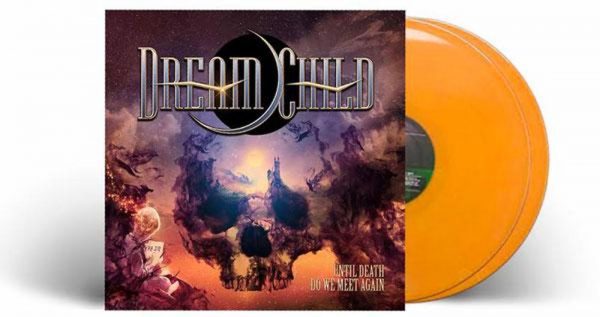
MM: During the past ten years we’ve had a bigger and bigger vinyl resurgence. Vinyl is very popular again. So I think that’s showing that the people want to hold the albums in their hands.
CG: Exactly. Thank you for saying that. Exactly. And there are a couple things we’re gonna try to do to stimulate actual CD sales. Little contests and stuff where they actually can win something worth paying 12 dollars for a CD. They’ll either get like a 30 minute Skype session with me or with one of the guys in the band. Something special that they wouldn’t normally get. That will really mean something to them. Probably what they’ll get will be worth more than the money they spend on the CD itself.
MM: It’s a good incentive, though. The other thing I find interesting is that Frontiers is obviously very successful. But when you go see a band like Warrant, or any bands from that era, mostly all they play is stuff from the first two albums. And their rationale is that the fans don’t want to hear new stuff. But they say that and at the same time Frontiers is very successful with putting out new music by these artists. So, I wonder when they’ll realize that a lot of their fans would like to hear the new stuff live.
CG: Exactly. I think a lot of musicians are broken-hearted, especially guys like me. I was paid as a sideman. It’s kind of like when a movie finally hits Netflix – I understand streaming, you know – I get it – but it had its opportunity in the theatre. It had its opportunity On Demand or on HBO or Showtime. So, by the time it reaches Netflix, it already had the opportunity to make some money. But our stuff goes straight to streaming. We don’t even get a chance to make any money. And it’s not about money, it’s about money [being] a tool. When I was in the band with Ronnie, he handed me an envelope and gave me an address and I went down and hand-delivered it and it turned out to be a rent check for a fan who was having trouble paying their rent that month. Ronnie did a string of concerts because he heard about a charity where a doctor went on the streets, rescuing these kids that got messed up in drugs and prostitution because they were coming to Los Angeles, trying to become famous. So, he did a string of concerts and built a shelter. This shelter was a complex where there were counselors to help them get off drugs and counselors to help them deal with why they got on drugs in the first place. They could get their GED and get a college degree. A masters degree. A bachelor’s degree. We did a 10-year reunion after that shelter was built and they showed the before and after. There was a man who started off from the streets who peed his pants because he was so high he didn’t realize he had to go and was so out of it. Now he’s a four-star general of the United States Army. Just because Ronnie used his celebrity. The money that he made had nothing to do with being selfish. He gave the fans an 18 foot, fire-breathing dragon. And a gigantic metal spider. He didn’t hike up the prices of those tickets so he could make his money back. He cut his profit margin in half. And that message was never really quite received in full.

RANDOM QUESTIONS:
MM: What are your pre and post-show rituals?
CG: Pre is I’m usually nervous and so I’m kind of doing my deep breathing and I like to pray. I know God doesn’t care if somebody wins the Superbowl or wins a Grammy, but I think God cares that you do your best. So, if you do win a Grammy, or you do win the Superbowl, that with your new heightened position you’ll be able to do something good with it. That’s why I try to be as impressive as I possibly can on stage. I try to play CD quality on stage live. I try not to miss a note on the solos. I try to do everything note for note. And then try to be so good with those fans afterward. I give and I give and I give. Almost every time I come back from a Dio Disciples show, I’m either sick or broke or both because I’ve given so much. And it’s worth it because in the Bible it says, “You can’t change the city until you’ve changed the hearts of the people in the city.” So, I get to meet people and go city to city and treat them the way Ronnie would treat them. If there were people in the heat, Ronnie would bring them into a nice, cool soundcheck. If it was freezing cold, he’d bring them into a nice, warm soundcheck. That personal touch. City to city, place to place. That’s my kind of pre-show thing, praying and getting my head together and practicing and tuning. I play and practice as much as I can before I go on stage. So, that way I can bring my A game. That’s why I don’t really move around a lot. To me, it’s a memorial service in the form of a rock concert. At least the Dio Disciples. So, I’m concentrating because every note and every chord matters. My post-show ritual is to get out of my boots – I used to blow dry my hair but people leave so soon now because they’re so used to the bands never coming out. So, the minute I come offstage I take a couple of deep breaths, get out of my boots and into my tennis shoes, and take a couple of sips of something cold like water, or Coke, or Sprite, and then go straight out to the floor. And treat the fans as good as I possibly can until they’re all gone.

MM: Sweet. Very cool. So, if you could have any instrument on earth, what would you pick?
CG: I’d like to have another Strat. I’d like to have another Fender Strat. Because there’s something about a Fender Strat that I play differently on. Nothing about ESP because I love ESP. They’re beautiful and I never want to stop playing ESP. And those ENGL Amps. The mixture of my ESP and the ENGL Amps is perfect for me. But eventually, I would love to have another Fender Strat.
MM: What was the first album you ever bought with your own money?
CG: Deep Purple, Burn.
MM: Was it on cassette or 8 track or vinyl?
CG: Vinyl, yeah. I’m looking at one right now. My girlfriend, we went to a fair here in San Diego and there was a guy selling old albums and she bought me the vinyl of Deep Purple Burn and Deep Purple Stormbringer. I’m looking at them both right now. Bought them again. [Both laugh]
MM: Do you collect vinyl?
CG: No, but I probably will start.
MM: What was the last album you bought?
CG: That I purchased, right?
MM: Yeah.
CG: That’s hard to say because I purchased some stuff because I’m getting ready to do some concerts. Some Rock ‘N’ Roll Fantasy Camp stuff. I don’t like to just rely on Youtube. I like to buy the songs and then learn them. So, I think it would’ve been both because I wanted to learn something and because I wanted it. It was Led Zeppelin’s Song Remains the Same. I bought the whole album off of iTunes. I’d already bought it before, but I don’t know where it went.
MM: What do you do to work past writer’s block?
CG: I watch movies. Especially like thrillers or action movies. I pay attention to the music. Matter of fact, at one point I was able to write off my VCR rentals because I literally would listen to them and I would get inspired by them. I’d put a tape recorder and rewind it, or fast forward it, to the spot and then I’d stand by the TV and I’d record that little spot. Then I would kind of learn it. So, that’s the chord they’re using. So, I’d figure out how to utilize that without stealing it. And some of the stuff on Magica was done that way. Was inspired by listening to music off of movies and I tried to incorporate that.
MM: Have you ever thought about scoring a movie?
CG: Oh, I’d love to. I would love to do that. That’s one of my big dreams, yeah.

MM: What are your hobbies or interests outside of music?
CG: Well, I can draw like a photograph and paint. Trying to get a job as an artist gave me migraines, so a lot of times what I’ll do is for friends and families for their birthdays we call it a treasure hunt. It takes me five days and I put together all these really weird-looking creatures. And each one of them has a meaning. Let’s say one character I drew was a two-headed angel and they were twin brother and sister and the sister was the good one and the brother was the bad. And so she’s the one that tries to make sense out of all the bad that happens in your life. Because we live life forward and understand it backward. A lot of times, if you go back and look at the past some of the bad stuff that happened forced you on a different path then you kind of end up in a place that you prefer over what you originally wished for. You can actually almost say out loud, it’s a good thing that bad thing happened. That’s the character that represents that circumstance. And then I have a name for her and him, and like a Doctor Seuss type of rhyme, and then I give a clue to where the next envelope is then they open it up and they’re like, oh my God. I color them really good so they look really super cool, you know? I do that sometimes. At some point when my website comes up, I’d like to try [art] as another source of income that I’m capable of doing that I think people would find interesting.
MM: What’s a fake name you’ve used when checking into hotels?
CG: Oh, I loved the one that I stole from Tommy Lee. First name, Oliver. Last name, Clothesoff. [Both laugh] Ronnie had told me that he heard Tommy Lee use that and I thought that was great. Oliver Clothesoff. Mister Clothesoff.
MM: If someone was giving you a million dollars to give to charity and it all had to go to one charity or cause, which would you give it to?
CG: That’s a good question. I would do some research to find out which charity had open books. Here in America, there are children who starve and homeless people who have heartbreak. Because I was homeless at one point. I left my home to avoid the abuse – physical and verbal abuse – [I was] in and out of hospitals with stitches and surgeries at the age of 14. I’ve had some really horrible experiences that I used to think were so unfair. Why me, why me, why me? And then one recent day there was a homeless guy sitting outside of Vaughn’s and he asked me for a quarter. And I literally didn’t have any money on me. I said, “I’m sorry, man.” Because I was in a hurry because my mom had just fallen and was in the hospital and I needed to attend to some paperwork for her. And my girlfriend was getting out of work and coming over and I don’t like her to have to go to the store right after work so I wanted to do it for her. A lot of stuff going on simultaneously. But I said, “I know what it’s like. I was homeless once, too.” “Well, what did you do?” And I go, “Well, I prayed and I worked hard and I got myself out of it.” And there was something about him. I had some frozen stuff and some chocolate stuff but it didn’t matter. It was for a greater good. Something told me to go talk to him. So, I just sat next to him and he said, “What did you do?” And I told him. And he goes, “Man, I used to have money. And I never wanted this.” And he goes, “You don’t know what it’s like to be beaten as a kid and you don’t have anybody to tell you how to navigate through life. The people who are supposed to love you are beating you. And I just didn’t know what to do, so I don’t have any confidence, and that’s why I drink.” I looked over and I grabbed his arm and I said, “I want you to look at me.” I said, “C’mon, Gary” – his name was Gary – and I get a chance to look him in the eye and I said, “I know exactly how it feels.” And he has a look on his face like a whole different world opened up. And we get on a conversation that is literally life-transforming. He reaches into his pocket and gave me the bullet he was saving to blow his brains out.

MM: That’s really cool.
CG: There was another guy who said he put a gun down after watching me on television and now he and my girlfriend are really good friends on Facebook. Another guy wrote me a letter from prison saying could you please just write me back. I didn’t know that he made a deal with God that he wouldn’t kill himself – because he was facing another seven years and he just couldn’t face it – but he made a deal with God, If Craig Goldy writes me back then I’ll hang in there. Something inside me told me to write him back. At that time, me and Ronnie were really good about that, writing back. And he said, “Be careful because some people can be really weird.” And I experienced that. I got these like total stalkers almost. But something inside of me told me to write him back. Seven years later, the Magica album comes out and me and Ronnie are walking toward the meet-and-greet – free meet-and-greet – and this husband and wife comes up to me and he says, “Dude, you’re never gonna believe this. I’m that guy.” And Ronnie looks over at me and gives me a wink and goes, “Go ahead, Goldy.” Because he knows what this is gonna mean. At first, I didn’t know. He goes, “I’m that guy! Dude, I’m that guy.” And then his wife had tears just dripping off her face. And he goes, “I’m that guy who wrote you that letter.” And he proceeds to tell me that he made a deal with God. He didn’t tell me that in his letter. It was like a family reunion almost. And it can be that complex. It can be about making great music or changing people’s lives. But my story, I used to hate. I didn’t like all those hours spent in that car alone. I didn’t like all those beatings. I didn’t like all those stitches. At the age of four. I didn’t like having a metal tube stuck down my penis just to dissolve the scar tissue just so I could pee and how badly it burnt. I was 11 years old.
MM: Wow. That’s awful.
CG: That’s horrible. And I had so many bizarre experiences beyond that. But this music calls to the down-trodden, and the black sheep of the globe, and the people who are secretly hurting, and the people who feel left out, and the people who feel like they don’t belong. Those are these people that come to these concerts. And then you get a chance to talk to them and all of a sudden something will slip like, “You don’t know what it feels like.” And it’s like, “Ah, yes, I do.” And it’s a beautiful thing. There are a few people where one encounter totally changed their entire life. They’re a completely different person the next year we came back to their town. They were completely cleaned up and completely had their act together and were just like, “Thank you.”
MM: Like you said, something about heavy metal does attract the down-trodden. When I was a teenager, it was a source of reassurance. I’d get bullied at school then I would come home and listen to Iron Maiden and I felt like I was in on a secret that they weren’t in on and that made it OK somehow.
CG: [Laughs] That’s so good. I felt like I was in on a secret that they weren’t in on. Yeah! Exactly!
Read Part One of this interview.
Order Dream Child’s Until Death Do We Meet Again CD on Amazon.
Order Dream Child’s Until Death Do We Meet Again on vinyl on Amazon.
Order Dream Child’s Until Death Do We Meet Again on mp3 on Amazon.
Reminder — the album will be released on September 14, 2018, via Frontiers Records.

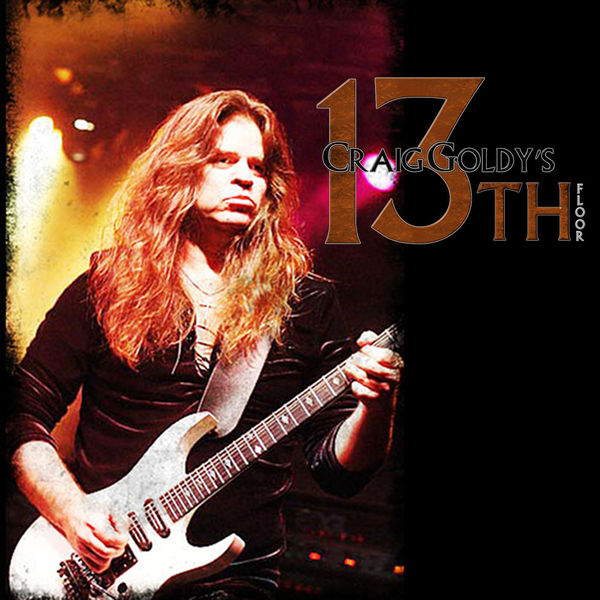

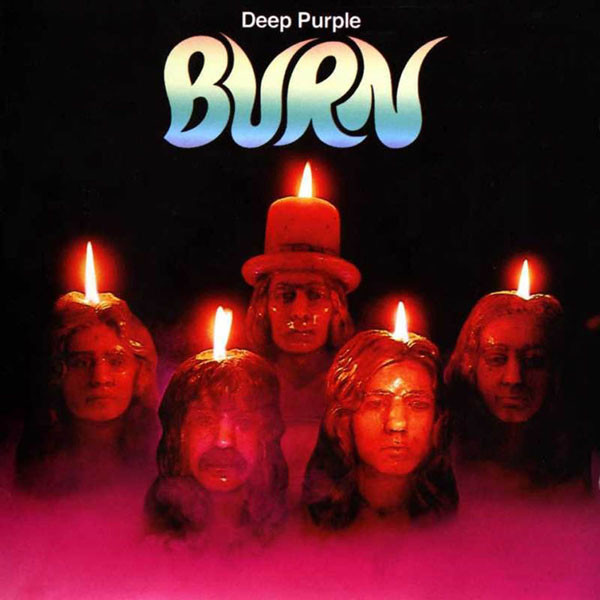
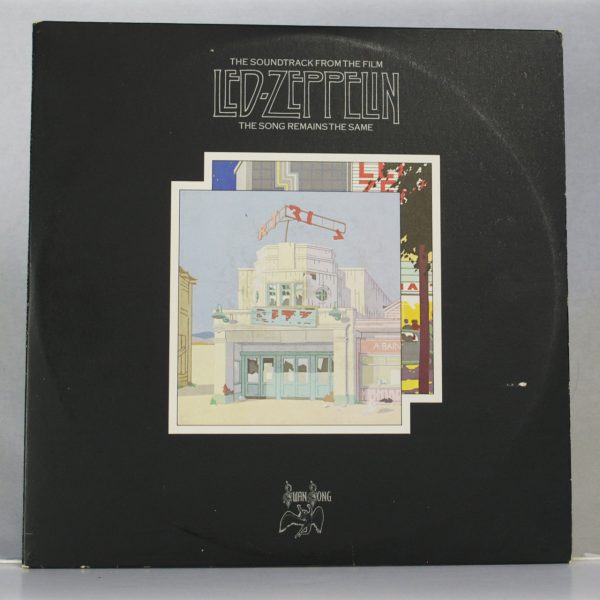
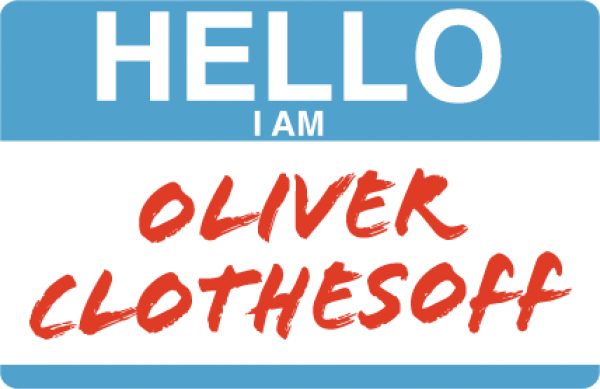
Leave a Reply